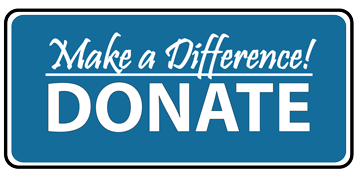Ann Arbor (Informed Comment) – On Thursday, the World Food Program of the United Nations urgently announced that Gaza faces widespread food shortages.
Abeer Etefa, World Food Programme (WFP) Senior Spokeswoman for the Middle East, North Africa and Eastern Europe, said at a press conference, “We are already beginning to see cases of dehydration and malnutrition, which are increasing rapidly.”
Because Israel had chased so many refugees there from southern Israel and because of its economic blockade on the Gaza Strip since 2007, the people of Gaza have been kept alive through aid. Aid agencies brought 500 trucks’ worth of supplies into the strip daily before October 7.
On Friday, according to the UN Office for the Coordination of Humanitarian Affairs, no supply trucks will enter from the Rafah crossing, because UNRWA lacks the fuel necessary to operate trucks in the Strip itself, and so the supplies are just building up undelivered. UNRWA (the UN Relief and Works Agency dedicated to helping Palestinian refugees from Israel’s ethnic cleansing campaigns) says Israel had let in some fuel earlier and some deliveries were made, but that the fuel had been used up and it had been unable to secure more.

The food trucks allowed into the Gaza Strip from the Rafah crossing in the past month have only provided 7% of the caloric needs of the population, the WFP says.
The WFP website reported, “Supplies of food and water are practically non-existent in Gaza and only a fraction of what is needed is arriving through the borders. With winter fast approaching, unsafe and overcrowded shelters, and the lack of clean water, civilians are facing the immediate possibility of starvation,” said WFP Executive Director Cindy McCain. “There is no way to meet current hunger needs with one operational border crossing. The only hope is opening another, safe passage for humanitarian access to bring life-saving food into Gaza.”
Food and Fuel Shortages in Gaza – UNRWA & WFP Press Conference | United Nations

Israeli ground attacks in the west of Gaza City have also produced life-threatening conditions. OCHA explained that “households in the western neighbourhoods of Gaza city appealed for help after their remaining food and drinking water had been depleted. Reportedly, they were unable to leave their homes because of the presence of Israeli ground troops and fighting”
UNRWA warned on Thursday that 70 percent of Palestinians — men, women and children — in southern Gaza “have no access to clean water. Furthermore, raw sewage started flowing in the streets in some areas.”
In the north, there appears to be no potable water at all, since the desalinization plant is not operating and the Israeli pipleline was deliberately cut off by the government of PM Binyamin Netanyahu.
No water bottles have been distributed. People are drinking dirty surface water, which can spread diseases, or polluted aquifer water, which has a high salt content and an unhealthy bacteria count, both of which can lead to illness and death.
The lack of clean water is among the reasons that bakeries are not operating. Some bakeries have been destroyed or damaged by Israeli bombs. Unless you think they were targeting Hamas bakery chefs, these strikes were aimed at depriving the civilian population of bread. Most bakeries also lack the fuel necessary to operate.
“The collapse of food supply chains is a catastrophic turning point in an already dire situation, where people have been stripped of basic necessities”, said Samer Abdeljaber, Representative and Country Director of WFP in Palestine. “Without access to fuel, our ability to provide bread or transport food to those in need has been severely compromised, essentially bringing life in Gaza to a standstill. People are going hungry.”



 © 2025 All Rights Reserved
© 2025 All Rights Reserved